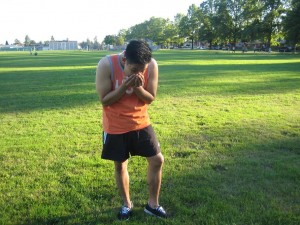The night time congestion is considered as a prevalent issue during childhood due to the swelling of the tissues as well as the blood vessels on the interior part of the nose. In most cases of congestion, it results due to a bacterial or viral infection and typically resolves on within a span of a week.
In case the individual experiences blurry vision, severe throat pain, facial swelling or persistent coughing along with the night time congestion or lasts longer than 2 weeks, a doctor should be consulted for proper assessment.
Common cold
It is important to note that common cold is often responsible for night time congestion among children, causing symptoms such as stuffy nose, cough, sneezing, nasal drainage and sore throat. When treating congestion due to a cold, you can provide over-the-counter saline nose drops or utilize a cool-mist humidifier to moisten the dry, indoor air as well as loosen the congestion. It is also advised to provide chicken soup since it contains amino acid that helps thin out the congestion which causes the mucus production. You can enroll in a first aid class today to learn ways to manage this condition.

Sinusitis
Sinusitis can also disrupt with the sleep of children by causing congestion. The other symptoms of sinusitis include cold that lasts for 10 days, thick yellow-green discharge from the nose, low fever, fatigue and headache.
Sinusitis can also cause postnasal drip once the fluid from the nasal passage flows into the throat, resulting to congestion, coughing and sore throat. Children who are suffering from congestion due to sinusitis will no longer have the symptoms after treatment using antibiotics. In case the infection persists for several months, the doctor might recommend surgery.
Allergic rhinitis
Take note that rhinitis is considered as a usual cause of night time congestion among children. Seasonal and indoor allergens are responsible for causing the symptoms of rhinitis such as itchy nose, itchy eyes, sneezing as well as sore throat when waking and night time cough. In case the congestion is caused by allergic rhinitis, the doctor can recommend anti-inflammatory medications, antihistamines, nasal steroid sprays or decongestants to relieve the symptoms and congestion.
Food allergy
In some cases, food allergy or intolerance can trigger inflammation and increased mucus production, resulting to night time congestion, sneezing and sniffling. The usual food allergies that can cause issues among children include milk, eggs, tree nuts and peanuts. The treatment for food allergies typically involves complete avoidance of the allergen.
Physical blockage
Night time congestion can occur due to a physical blockage in the nasal cavities. Children are likely to insert items into their nasal cavity that might make breathing during night time difficult. A deviated nasal septum or large turbinate can also disrupt with breathing and cause congestion. Those who have chronic nasal congestion issues due to physical blockage might undergo surgery to make breathing during night time easier.
